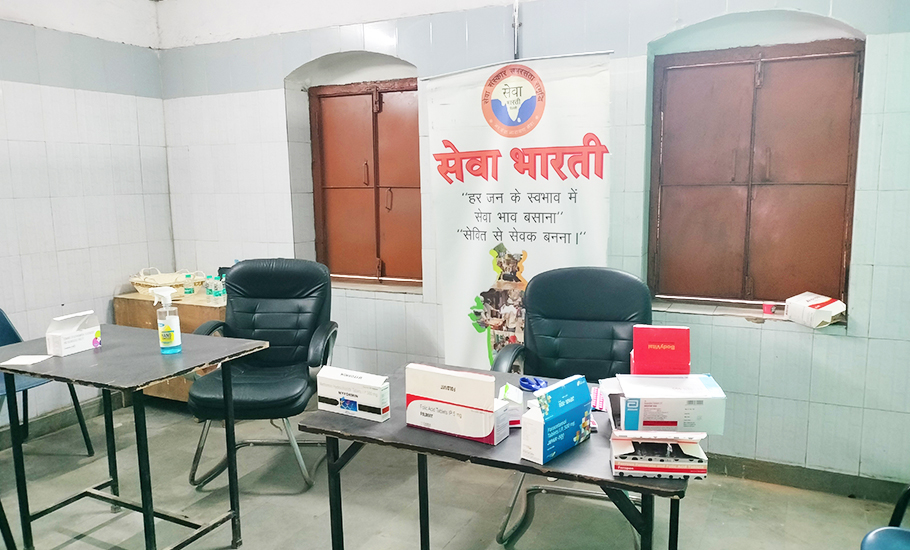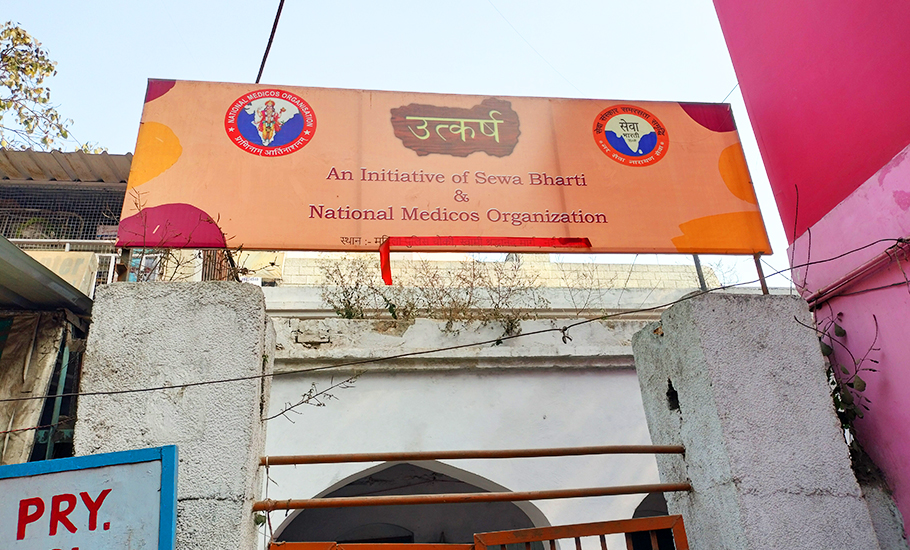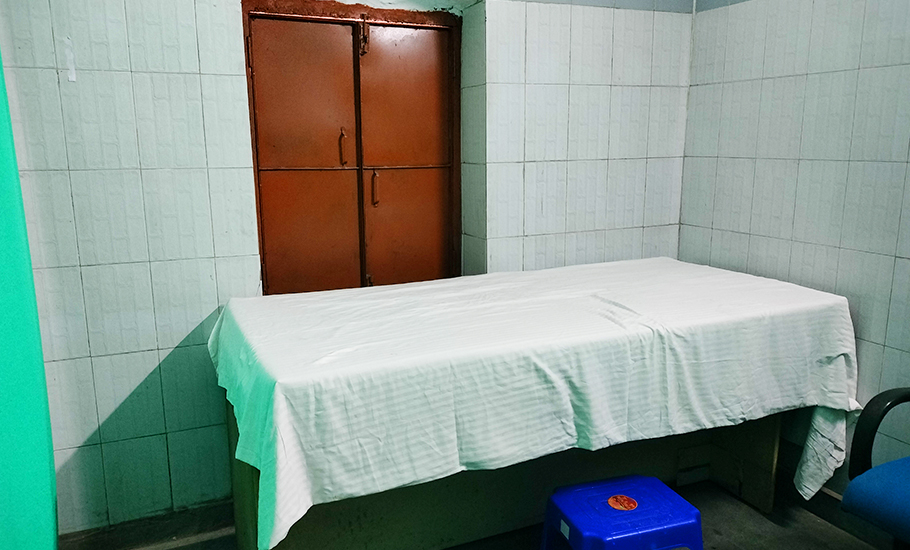
- Home
- India
- World
- Premium
- THE FEDERAL SPECIAL
- Analysis
- States
- Perspective
- Videos
- Sports
- Education
- Entertainment
- Elections
- Features
- Health
- Business
- Series
- In memoriam: Sheikh Mujibur Rahman
- Bishnoi's Men
- NEET TANGLE
- Economy Series
- Earth Day
- Kashmir’s Frozen Turbulence
- India@75
- The legend of Ramjanmabhoomi
- Liberalisation@30
- How to tame a dragon
- Celebrating biodiversity
- Farm Matters
- 50 days of solitude
- Bringing Migrants Home
- Budget 2020
- Jharkhand Votes
- The Federal Investigates
- The Federal Impact
- Vanishing Sand
- Gandhi @ 150
- Andhra Today
- Field report
- Operation Gulmarg
- Pandemic @1 Mn in India
- The Federal Year-End
- The Zero Year
- Science
- Brand studio
- Newsletter
- Elections 2024
- Events
- Home
- IndiaIndia
- World
- Analysis
- StatesStates
- PerspectivePerspective
- VideosVideos
- Sports
- Education
- Entertainment
- ElectionsElections
- Features
- Health
- BusinessBusiness
- Premium
- Loading...
Premium - Events

Pill to fight stigma: What Seva Bharati’s dedicated health clinic means for sex workers of Delhi’s GB Road

In 2020, Nidhi* was in her early 20s when she realised her periods were delayed. Despite the concern weighing heavily on her mind, she went about doing her work, which involved providing sex services to men, on Delhi’s Garstin Bastion Road, running from Ajmeri Gate to Lahori Gate. As a few more days passed, she grew worried. Shrouded by anxiety and fear, Nidhi took a home pregnancy test....
In 2020, Nidhi* was in her early 20s when she realised her periods were delayed. Despite the concern weighing heavily on her mind, she went about doing her work, which involved providing sex services to men, on Delhi’s Garstin Bastion Road, running from Ajmeri Gate to Lahori Gate. As a few more days passed, she grew worried. Shrouded by anxiety and fear, Nidhi took a home pregnancy test. The test confirmed her fear and an even bigger worry took over Nidhi’s mind — what to do now?
Abandoned by her husband and working in a profession ridden with stigmas, Nidhi knew she had to abort. What she didn’t know was she would be denied a safe abortion and lose her life in the process.
“My sister lost her life due to the brazen discrimination against us. She approached a government facility for an abortion. The hospital told her that her consent to abortion wasn’t enough and that she needed to come back with the consent of her husband to get the abortion done. As her husband had left her, Nidhi could not get an abortion done at the hospital. Left without a choice, she attempted it at home. The procedure led to complications and Nidhi lost her life,” Nidhi’s sister Pooja, who too is a sex worker, tells The Federal, with tears welling up in her eyes.

Within a quasi-criminalised prostitution environment, sex workers are victims of occupational stigma which has led to creating barriers in accessing health services. Despite the Supreme Court pronouncing “sex work is a profession”, on the ground, sex workers are frowned upon and treated with contempt. The stigma is more pronounced in hospitals.
A study conducted in 2012 among sex workers in Maharashtra by International Center for Research on Women discovered that of the 329 people surveyed, 66 per cent had been discriminated against by health workers due to their profession. As many as 61.4 per cent said that health workers would often reveal their identity to others and make fun of that. Further, 62.3 per cent complained that doctors and other hospital staff at times refused to admit them to hospitals without conducting HIV tests. Also, 64.4 per cent said that they were forced tests for sexually transmitted diseases whenever they fell ill.
To remove the barriers and ensure health care without prejudices, Seva Bharati, the service wing of the Rashtriya Swayamsevak Sangh (RSS), has come up with a novel and noble initiative — a health clinic exclusively for sex workers and their families around GB Road.
Project Utkarsh
“Improving awareness and screening for health risks among sex workers has for long been a neglected aspect of healthcare,” says Prakash Mishra, office secretary Seva Bharati Delhi.
Mishra says that the idea for the initiative came during the times of Covid pandemic, when the institution got calls for help from all across.
“We got calls from GB Road too. During our visit, we realised the deplorable condition in which these women were staying. So we decided something had to be done. As we carried on with our service, we were drawn towards their health needs and how they were neglected from healthcare delivery,” Mishra tells The Federal.
Currently being run from a non-functional municipal school, the health clinic, set up under project Utkarsh, aims to ensure routine check-ups and treatment.
Sushil Gupta, general secretary, Seva Bharti, Delhi, said, “There are around 3,300 sex workers in GB Road and we are very sure more women will visit our clinic over a period of time. On January 1, when the clinic was inaugurated, there were around 30-40 women.”
Utkarsh, which means awakening or prosperity in Hindi, is a joint initiative of the Delhi Police, Seva Bharati and and National Medicos Organisation (NMO), which is extending help with medical expertise. The doctors who have agreed to be part of the project serve in reputed hospitals such as AIIMS, Ram Manohar Lohia Hospital, Safdarjung Hospital. Even students from some very reputed medical colleges have volunteered to work under project Utkarsh.

Sex workers in the GB Road area, who until now found the task of visiting hospitals traumatic, have welcomed the move.
“We need to register our names and dish out other personal details when we visit hospitals. We don’t want to divulge too many personal details because that leads to us being judged. Many of us take heavy medication to stay awake for long hours. We also go through health complications because of our line of work. The new clinic claims that it will provide us health services without asking for our personal data, it is indeed a blessing for us,” Anamika, a 23-year-old sex worker, told The Federal.
The stares and the jeers
The fear of being judged for their line of work has haunted sex workers in hospitals, forcing them to retrace their steps without getting the medical care needed.
“There was an instance when I left without getting myself checked. The hospital staff asked me to share my biometrics. I turned anxious and just left. My fear stemmed from what I have routinely experienced once people find out what I do for a living. I have experienced insensitive behaviour and unnecessary prodding from medical staff umpteen times. We [sex workers] experience an array of negative health outcomes, including increased chances of sexually transmitted infections (STIs), sexual or physical violence, incarceration and reproductive coercion, unintended pregnancy and emergency contraception, but somehow we remain largely outside public health care policy,” Anamika says.
She says that the level of stigma is such that doctors refuse to even touch them for medical examination. “Doctors just refuse to do a physical examination before prescribing medication. They refuse to examine us and simply say – tell me what is wrong and I will give you the medicines.”

“Many of us suffer from mild to severe mental health issues, but no treatment facilities are available specifically for us. When we seek health services, we want to be treated like other individuals — with open mindedness, respect and sensitivity. But even doctors more often than not tend to us with a judgemental attitude,” she says.
“Since the clinic is for sex workers they would already know the kind of issues we face and more importantly, who we are. We will be able to escape the curiosity, the giggles and the stares we get at normal health facilities. Like other people, we will now have a space where we would be able to talk about our medical issues without inhibitions,” Anamika says.
Pooja, who lost her sister to lack of medical care, says, “Emergency contraceptives that are used to prevent pregnancy in the first few days after unprotected intercourse, sexual assault, or contraceptive failure are one of the most sought-after medical recourse for us,” says Pooja.
These medicines are known to have adverse health impacts when used over a long time.
“Women often find it convenient to buy over-the-counter abortion pills. Using these pills without a proper prescription, and for an extended tenure, we put ourselves at a great risk of excessive bleeding and other long-lasting impacts,” Pooja says, sitting amid a group of young sex workers, who nod in agreement.
How the clinic can help
The clinic will initially remain open only on Sunday from 11 am to 2 pm. Later, however, it will open thrice a week. To attend to the patients a team of doctors and medical staff, including medical college students, will be available on rotational basis.
The team will comprise general physicians and specialists including opthalmologists, gynaecologists and doctors specialising in oral care as consumption of chewing tobacco is rampant among sex workers and so are the resultant health issues. All doctors are associated with NMO.
While the clinic will provide basic medication initially, if procedures like abortions are recommended by the doctors, the patients will be asked to visit the hospitals in which these doctors practice. This will ensure that the sex workers do not have to face the usual stigma they face in government or private hospitals trying to explain their complications.
“There is a team of doctors who is part of this project. It includes five female doctors and three gynecologists. The women mostly suffer from multiple ailments such as vitamin deficiencies, skin problems, oral issues. As a team, we will be helping them to get themselves treated for many such ailments. The clinic, initially will provide basic medications, however, for further procedures they will be called to government hospitals in which the doctors are associated. Our team is really excited to work with them. Seva Bharati’s initiative is a great service,” said Dr Mukesh Nagar, NMO general secretary.
Seva Bharati has also tried to ensure that the women do not have to stand in queues in path labs and so blood tests and other medical tests for the sex workers will be done at Seva Bharati labs free of cost.
Seva Bharati says they have estimated about Rs 5 lakh would be needed to run the facility on a monthly basis, which the organisation will manage from the funds its gets as donations.
Apart from the doctors and civil society, project Ukarsh also enjoys the support of the Delhi Police.
“I helped Seva Bharti connect with the local police. I only acted as a facilitator as it is very difficult to undertake any work in the area without the assistance of local police, given the sensitivity of the work and the network of touts active around. Majority of the work was undertaken by Seva Bharti. The police fraternity has gone beyond its duty of mere policing and has included the social aspects as project Utkarsh is a great initiative,” Alok Kumar, IG, North Sector, CISF, who was a former special commissioner of Delhi Police, says.

The coming together of various arms of the civil society and the public administration to ensure sex workers can find a healthy environment to discuss their health issues and get treatment in a respectable and dignified environment can go a long way in ensuring that this crucial gap in public healthcare can be plugged.
(Names of all sex workers have been changed to protect their privacy.)
